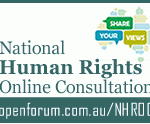As I go through everyday life, I see people face down in some sort of electronic device. Changing the tune on their iPod, sending text messages on their phone, playing games on their handheld device, checking emails on their tablet, reviewing spreadsheets on their laptop and finally catching up with their daily duties on their home computer with the television going in the background.
After a local teenager was struck and killed by a train whilst listening to music, students were advised to only have one earpiece in at a time so that they could be ‘partly hearing’ while walking.
Whilst walking through a shopping centre recently, I saw two young children (both under 10) sitting on their own playing computer games on a handheld device – not an adult in sight. At cafes and restaurants I see people sitting together with their hands ready to pounce on their mobile phones as soon as a vibration occurs. During a recent business meeting, a teenage participant spent the whole time face down on Facebook.
On a train I observed three young friends sitting together – two were on mobile devices and one had ‘finished’ and was looking around quite lost and lonely. I have seen older people listening via earphones but mostly just enjoying the view or chatting together. I have a personal penchant for old movies that display witty dialogue that requires careful attention to enjoy the full impact of the ingenuity and intellect displayed in the carefully selected words and actions.
So it leaves me wondering – have we lost the art of conversation and communication? Do we need to see something written on a screen or mobile device to be able to communicate now – and can someone who has a digital device ever be really present in the company of someone else without feeling some sort of withdrawal from their electronic companions? English may be our first language, but Digital is now our second language.
What concerns me more is that having access to the technology is just one component of this issue – every person in Australia must be able to navigate these digital resources to simply survive in Australia. They need to be able to make a phone call and choose from the recorded options or log on to a website to complete online applications or make payments for goods or services. They are often asked for a mobile phone number so that information can be sent by text (for instance, a natural disaster emergency) or provide an email address for a confirmation receipt.
This requires a thorough working knowledge of both English and Digital requirements and coping with the vagaries of electronic devices that do not always work. For instance, my own Mac laptop stopped showing the scroll bar on the right hand side of the screen whilst browsing the internet and it wasn’t until I exited the program and re-started it that it did work – would the average person who did not grow up with computers have any idea on how to solve this simple problem?
It is now almost mandatory for every small business to create a profile on Google Places, Google Plus, Facebook, Twitter and LinkedIn – not just the Yellow Pages. Their website needs to be updated frequently, preferably with a blog that provides regular commentary that is then broadcast through the various social media networks. I am already encountering several businesses who are being bamboozled by website designers and social media consultants and being charged ridiculous ongoing fees for tasks that take just moments to complete and they still do not understand WHAT they are doing.
Naturally the counter argument is to USE the technology to ensure that our Digital Divide does not increase. Rolling out the National Broadband Network (NBN) means that the general population needs to be educated on how to use the hardware (mobile phone, tablet, computer) and the most common software (including social media). If it doesn’t, Australia runs the very real risk of creating a class based society according to various grades of Digital Literacy and then needing policies for Digital Inclusion as well as Social Inclusion.
Research into the best programs to educate all residents on digital basics needs to start soon. We are already seeing disenfranchised individuals resorting to violence because they cannot secure work without digital skills. Every person is now required to create their own ‘brand’ on the internet because this is automatically checked before they are hired. To minimize the risk associated with one person who chooses to flame another person, they have to generate multiple pages of good quality content to counteract the impact of one individual (and not post inappropriate comment anywhere).
I would like to encourage the Federal Government to lead the way on this initiative – to utilize resources at the local level (through local councils), to ensure that everyone living in Australia or running a business in Australia, has access to free or low cost Digital Literacy programs run by people who are qualified trainers that can cater to the learning styles of different ages and cultures (it is no use having a 20 year old whiz kid showing Grandma how to use the internet in 10 minutes). This could be run for at least a full year in 2013 and then regularly for new arrivals from 2014 (which would also include settlement training).
An educated nation is a smart nation – so let’s lead the world and show how Australia, a remote location by world standards, can be the leader in community innovation and build the social and cultural capital of all of our residents through Digital Literacy training completed before the NBN is fully rolled out.
Sue Ellson BBus AIMM MAHRI is the Founder and Director of Newcomers Network, a socially responsible business providing information, events and advocacy for newcomers and networkers. With representatives in Melbourne, Sydney, Adelaide, Brisbane, Perth, Dublin and London, Newcomers Network helps people live, work and network in their new location. Sue is also the Convenor of the International Human Resources Network Victoria for the Australian Human Resources Institute and a regular feature writer for various publications. Connect directly to Sue via LinkedIn.















C. Johnson
April 12, 2012 at 2:04 am
I think your right
In the last five years the internet and communicatins has changed a great deal with Socila Media. Its true a lot are running around unqualified consulting on how to market your business online. The digital divide is a reality in Australia and is getting further divided. I live in a rural area and I am also concerned about digital literacy in a rural communities. and awareness of what people do online as far as privacy and profiling themselves.
Most users do not realise what impact the collection of data via social media could have on thier lives. Facebook timeline and LinkedIn are two major areas for concern.
We are becomming "always connected society" and communications will mean been connected. To understand this from a business point of view will could make the difference of success and failures. Considering the global nature of online communications then this could have a real impact on the economy.
It is import for people to become literate in the digital world and it is the responabilty for Governments to provide programs to address this upcomming problem. The NBN will only extravigate the issue however the issue is a current. It will still need the will of those wanting to participate to become literate in the digital world and from my experince many are to busy working in thier business and not on their business to be concerned about the future.
At present there is very little funding availble to start a digital litercy program and that is where the governments need to start. The communities will take on the challenge if there was funding for these programs.
Sue Ellson
April 18, 2012 at 3:30 am
I think you are right
Thanks C. Johnson for your considered response. Rural communities have a lot to gain from the NBN and it will hopefully create a more egalitarian business playing field.
However, sourcing good face to face training at the community level is challenging and I agree that a productive funding model needs to be put in place. I say productive because I believe that some responsibility needs to come from the community and some from the government (not just a handout) and it also needs to be efficient.
For instance, there needs to be buy in from both sides and meeting people where they are already meeting could make it more viable. If a similar ‘group’ meets once a month, then if a trainer could be there at that time and help with the Digital Literacy program then, I see that as being a productive model rather than trying to start from scratch and gather a disparate audience at a set time and place.
Do you have some more ideas – how could this REALLY work?
Jacinta O'Callaghan
April 20, 2012 at 4:05 pm
Digital Literacy Training
Fascinating article Sue! I can certainly see that "Australia runs the very real risk of creating a class based society according to various grades of Digital Literacy and then needing policies for Digital Inclusion as well as Social Inclusion." Like you, I enjoy the connectivity of the digital age but lament that the genuine face to face connection is dwindling.
Regarding training, I am wondering what role local Chambers of Commerce and TAFES, as well as Councils have in providing training to their communities in digital literacy? I agree that leaving it to independent agencies to train can be both confusing and costly for companies – not what a business needs! Another potential source of training could be local libraries; if they had the funding they could provide initial standardised training and provide support for community initiated support groups.
Sue Ellson
April 23, 2012 at 12:50 am
Digital Literacy Training
Thanks for your feedback Jacinta. They are excellent suggestions on places where the training could be conducted. Libraries may end up being training centres for accessing digital content at the rate of change that is now occurring because so many books and resources are no longer printed on paper.
It appears that the government is going to create digital hubs in 40 centres around Australia http://www.nbn.gov.au/for-households/government-initiatives/digital-communities/ although it will be done through grant funding that closes on 10 May 2012 http://www.dbcde.gov.au/digitalhubs – perhaps people in your local government area could apply? Let’s hope the program is not just to promote the NBN but to really improve digital literacy.
However, I believe that these sorts of initiatives need local champions, caring and concerned individuals like yourself who remind the digitally literate what it would be like if they were not digitally literate and able to do their fee free online banking during their lunch break, use EFTPOS at the supermarket without being terrified of computers or try to compile an Australian style resume and appropriate social media profile to gain access to employment opportunities.
Feel free to share the news with other people you know. Cheers, Sue
Sue Ellson
March 24, 2013 at 2:58 am
Technology Explained website produced by ABC
Just found this superb website – highly recommend it
http://www.abc.net.au/techexplained/
Cloud14
July 22, 2015 at 7:03 am
Thanks for this information.
Thanks for this information. Nice post.